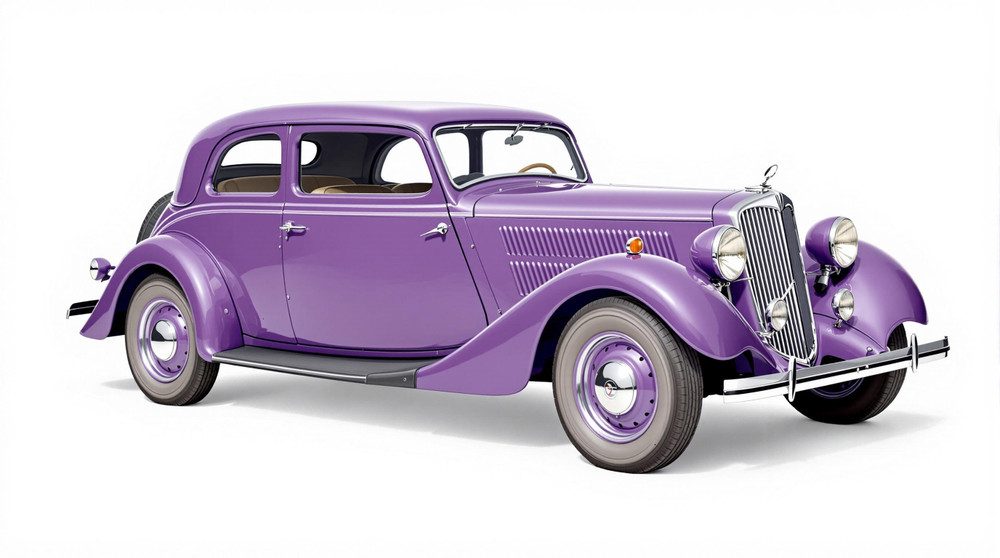Image of 1935 Graham Model 68, Note: These illustrations use artistic license and may differ from actual historical models.
Performance Metrics
Fundamental Metrics
Emotional Appeal
MMP Rating
| Engine Specifications | |
|---|---|
| Engine: | Straight-6 |
| Displacement: | 217 cubic inches |
| Horsepower: | Estimated 85-90 HP |
| Torque: | Not available |
| Compression Ratio: | Not available |
| Ignition System: | Distributor and coil |
| Cooling System: | Water-cooled |
| Performance Specifications | |
| 0-60 Time: | Not available |
| 1/4 Mile Time: | Not available |
| Top Speed: | 75-80 mph |
| Transmission and Drive | |
| Drive Type: | Rear-wheel drive |
| Transmission Type: | 3-speed manual |
| Fuel and Efficiency | |
| Fuel System Type: | Carburetor |
| MPG: | Not available |
| Dimensions and Brakes | |
| Brakes: | Mechanical drum brakes |
| Wheelbase: | 116 inches |
| Weight: | 3,200 lbs |
Note: Specifications for classic cars are given to the best of our ability, considering the limited and variant data available.
Unveiling the 1935 Graham Model 68: A Pinnacle of Pre-War Elegance
The 1935 Graham Model 68 is not just a car; it's a rolling testament to the innovation and style of the pre-war era. Born from the ambitious minds at Graham-Paige Motors Corporation, this vehicle emerged during a time when automotive design was as much about art as it was about engineering. The Model 68, with its advanced features and striking presence, became a symbol of hope during the Great Depression, showcasing what American ingenuity could achieve even in the toughest times. One notable moment in its history is its role in pioneering supercharged engines for passenger cars, setting a precedent for performance that would echo throughout automotive history.
Design and Innovation: The Art Deco on Wheels
The exterior of the 1935 Graham Model 68 was a visual symphony of chrome and curves, with an aerodynamic body that seemed to slice through the air even at a standstill. Its sweeping lines and pontoon fenders exuded motion, while the iconic 'Spirit of Motion' front end design gave it an almost futuristic appeal. Inside, passengers were treated to an opulence that belied the economic hardships of the era. Luxurious fabrics and meticulously crafted wood accents spoke of a commitment to quality that was Graham's hallmark. Technologically, the Model 68 was ahead of its time, boasting one of the first supercharged engines available in a production car. This innovation provided exceptional performance without sacrificing reliability. Color options ranged from stately blacks and blues to vibrant reds, with deep maroon being a particularly popular choice among discerning buyers. Buyers could choose from various body styles including sedans, coupes, and convertibles. However, it was the four-door sedan that became emblematic of the Model 68's blend of practicality and prestige.
Historical Significance: A Legacy Cast in Chrome
The Graham Model 68's impact on automotive design cannot be overstated. It challenged convention with its supercharged engine—a bold move that would inspire future generations of performance vehicles. The car's distinctive styling also set it apart from its contemporaries, influencing design trends well into the post-war period. The Graham Model 68 wasn't just a car; it was a beacon for future innovation.
Performance and Handling: A Symphony of Speed and Grace
On the road, the Model 68's performance was nothing short of impressive for its time. With a top speed that could reach up to 90 mph—a formidable feat in 1935—and acceleration that could leave other cars in its dust, it combined power with poise. Handling was precise and confident, allowing drivers to navigate both city streets and country lanes with ease. Driving the Graham Model 68 was an experience akin to conducting an orchestra; every hum of the engine and shift of gears played out like a well-composed symphony. The ride quality managed to be both supple and engaging, making every journey memorable.
Ownership Experience: More Than Just A Sunday Drive
The Graham Model 68 found its place as a versatile vehicle suitable for various roles—from a reliable daily driver to an esteemed show car or even as an occasional racer for those inclined towards competition. Maintenance was straightforward for the era's mechanics, ensuring longevity and reliability. However, owning such a classic today comes with considerations for specialized care to preserve its historic value.
Fun Facts: The Graham That Graced History
Did you know that some Grahams were known to have been owned by Hollywood celebrities during their heyday? Or that despite their luxury status, they were priced competitively against their rivals? Criticisms were few but did include remarks on their bold styling which wasn't to everyone's taste at the time. While no specific records in speed or sales are held by the vehicle, its endurance as a cherished classic speaks volumes about its build quality and appeal.
Collector's Information: A Treasure in Automotive History
Today, finding a 1935 Graham Model 68 can be as challenging as unearthing buried treasure. Production numbers were limited even back then—though exact figures are elusive—and surviving examples are even rarer. As such, values can vary widely but typically range from $20,000 for models needing restoration to over $100,000 for pristine examples. The market trend for these vehicles has generally seen appreciation over time due to their rarity and historical importance.
Conclusion: Celebrating The Spirit Of Motion
The 1935 Graham Model 68 stands as more than just another classic car; it is a piece of rolling history that encapsulates the spirit of an era defined by both struggle and splendor. Its legacy continues to influence automotive enthusiasts around the world—a true testament to Graham-Paige's vision and craftsmanship. Whether admired on a concours lawn or enjoyed on open roads, this pre-war masterpiece remains an enduring symbol of America's automotive heritage.
1935 Graham Model 68 Catalog of Parts
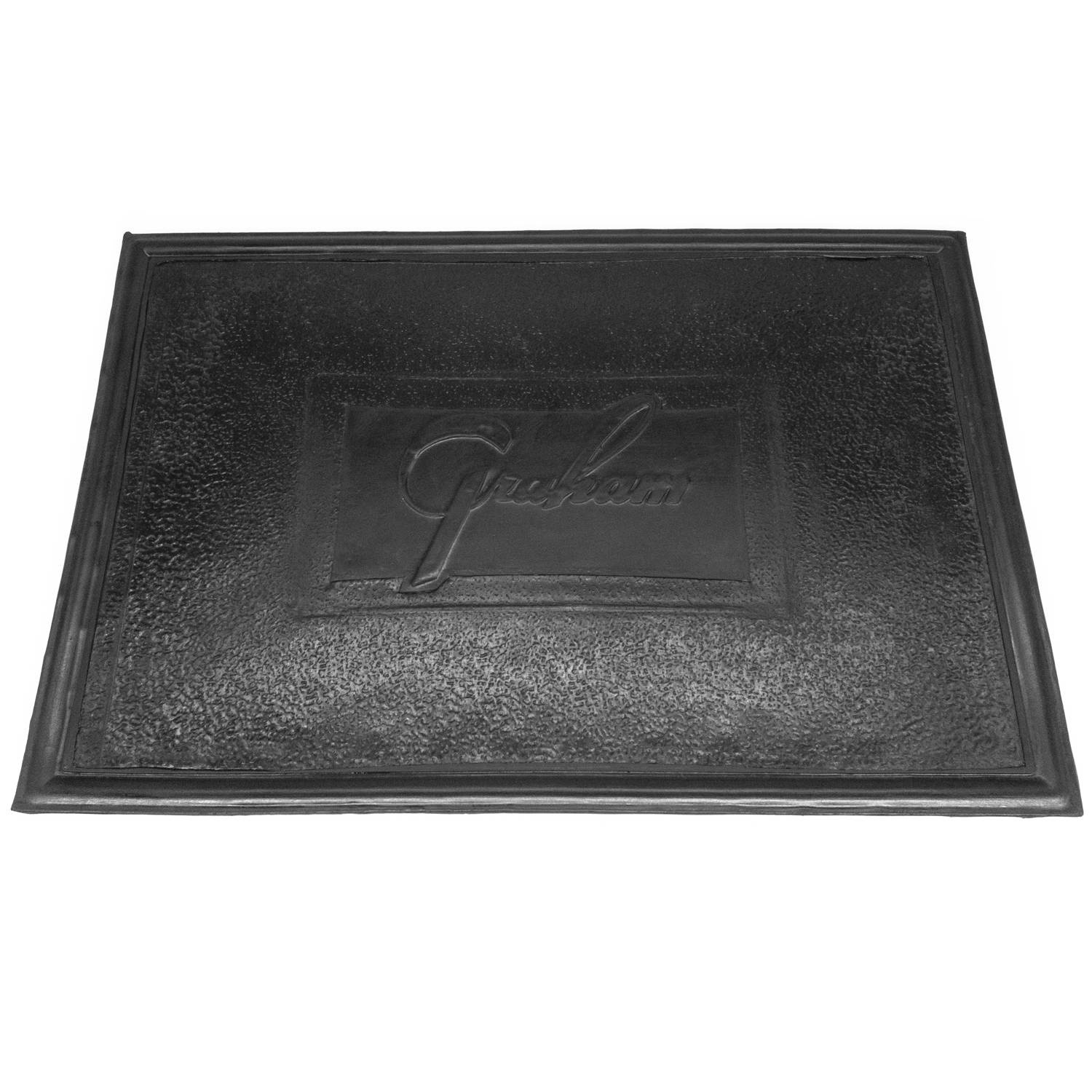 1935 Graham Model 68 Accessory Floor Mat - 12"X17"-AC 12Accessory Floor Mat - made of high quality black rubber with molded original emblem. Also designed to be sewn into new carpets. 12"X17", Each
1935 Graham Model 68 Accessory Floor Mat - 12"X17"-AC 12Accessory Floor Mat - made of high quality black rubber with molded original emblem. Also designed to be sewn into new carpets. 12"X17", Each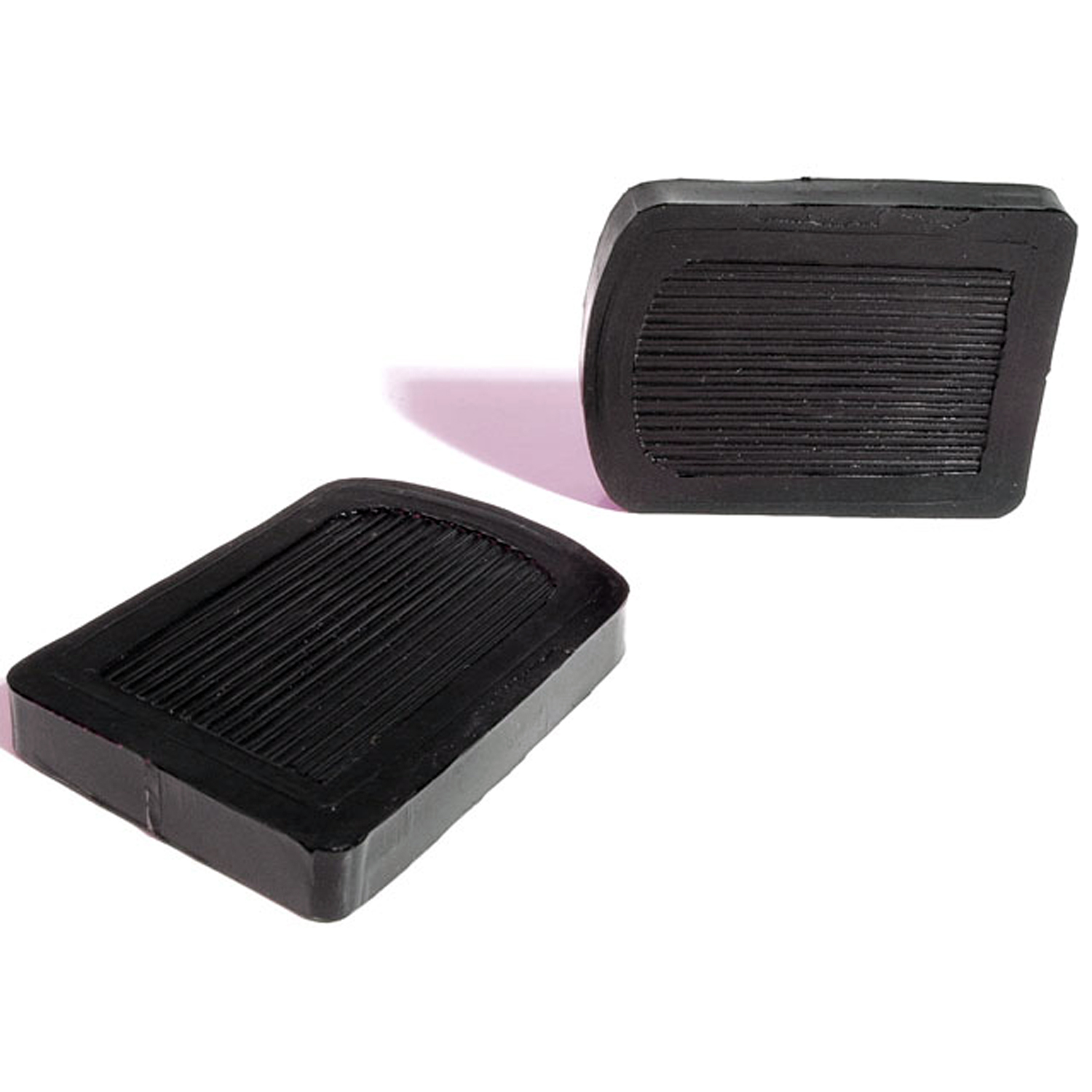 1935 Graham Model 68 Clutch and Brake Pedal Pads. 2-5/8" wide X 3-5/8" long-CB 25Clutch and Brake Pedal Pads. 2-5/8" wide X 3-5/8" long. Pair
1935 Graham Model 68 Clutch and Brake Pedal Pads. 2-5/8" wide X 3-5/8" long-CB 25Clutch and Brake Pedal Pads. 2-5/8" wide X 3-5/8" long. Pair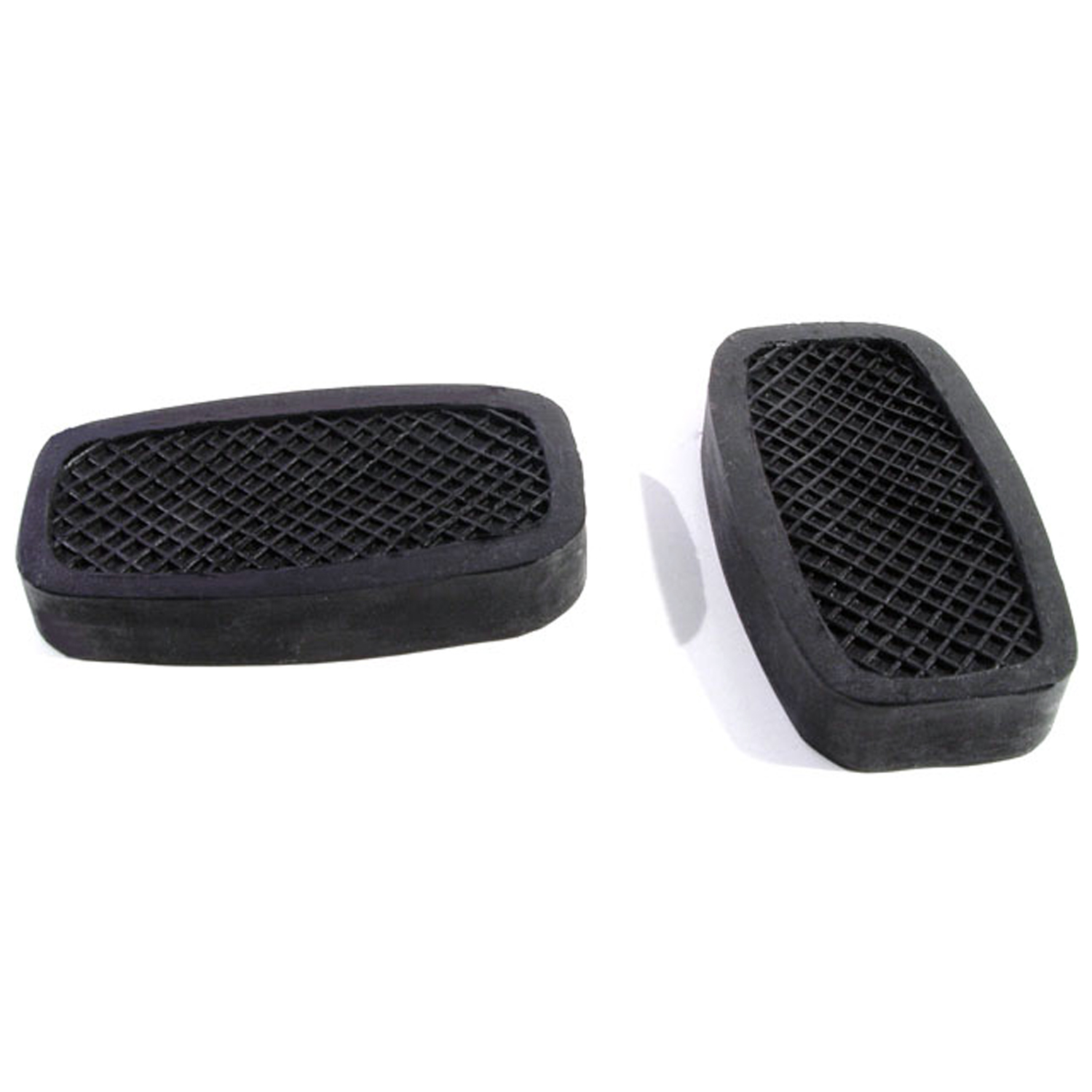 1935 Graham Model 68 Clutch and Brake Pedal Pads. 2" wide X 3-5/8" long. Pair-CB 46Clutch and Brake Pedal Pads. 2" wide X 3-5/8" long. Pair
1935 Graham Model 68 Clutch and Brake Pedal Pads. 2" wide X 3-5/8" long. Pair-CB 46Clutch and Brake Pedal Pads. 2" wide X 3-5/8" long. Pair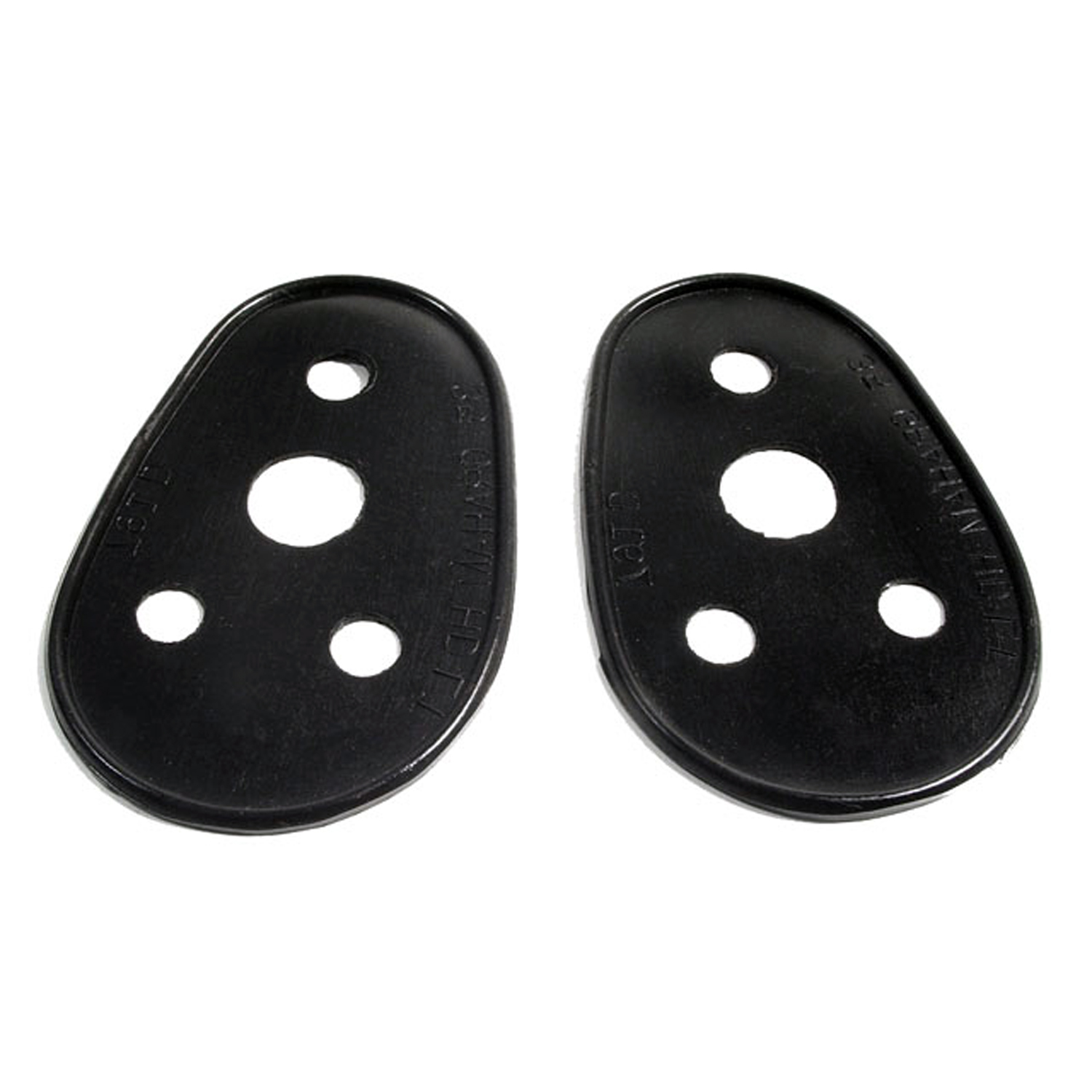 1935 Graham Model 68 Headlight Pads. 2-7/8" wide X 4-3/8" long. Pair-MP 791-DHeadlight Pads. 2-7/8" wide X 4-3/8" long. Pair
1935 Graham Model 68 Headlight Pads. 2-7/8" wide X 4-3/8" long. Pair-MP 791-DHeadlight Pads. 2-7/8" wide X 4-3/8" long. PairWhy Choose Metro?
For over 100 years, Metro Moulded Parts has been the pinnacle of quality in classic car restoration parts. Our commitment to precision and authenticity in every component ensures a perfect fit and an OEM-level appearance.
- Expert Craftsmanship & Quality: Each part is a testament to our dedication to reliability and perfection, crafted from original designs and thoroughly tested.
- Advanced Technology: We use cutting-edge techniques to create flawless, long-lasting parts that surpass others in performance.
- SuperSoft Sponge – The Ultimate Door Seal: Not only are our door seals 30% softer than competitors', but they're also guaranteed to never leak. They effectively reduce wind and road noise, enhancing your classic car's comfort and driving experience.
- Proudly American: Our parts are a product of American craftsmanship, made in the USA with a spirit of excellence and heritage.
- Unrivaled Warranty: We back our products with a 30-year industry-leading warranty, a testament to our confidence in their quality.
Join us in preserving the legacy of classic cars with parts that are crafted for perfection, not just made.

